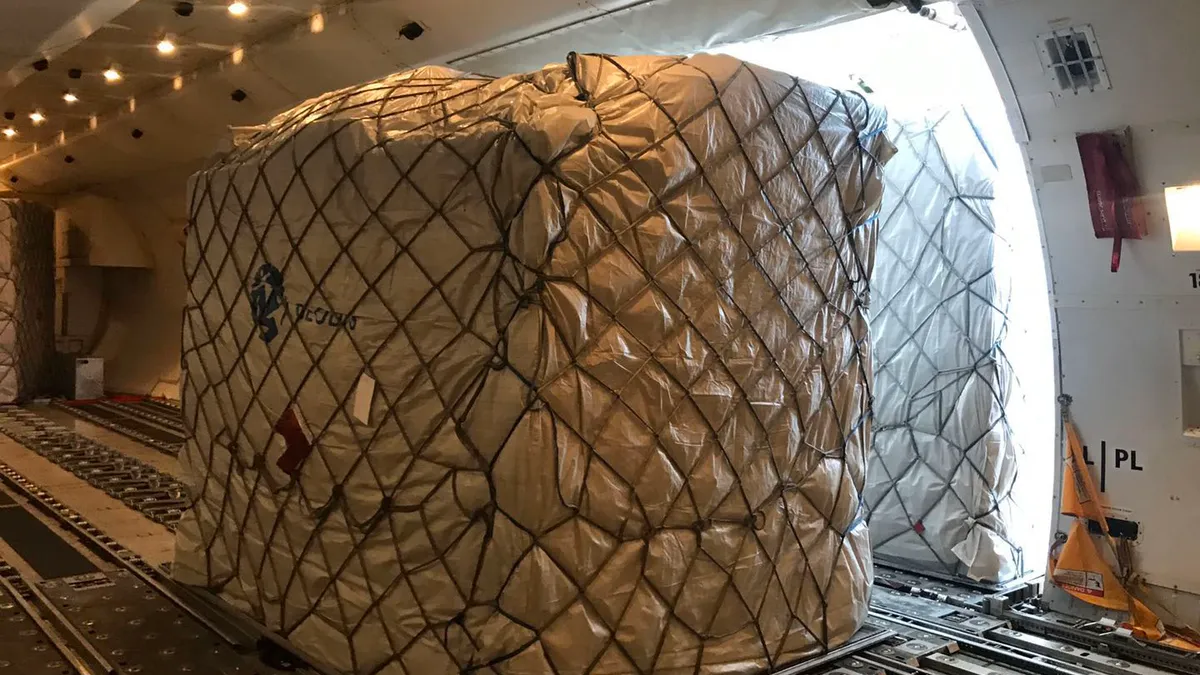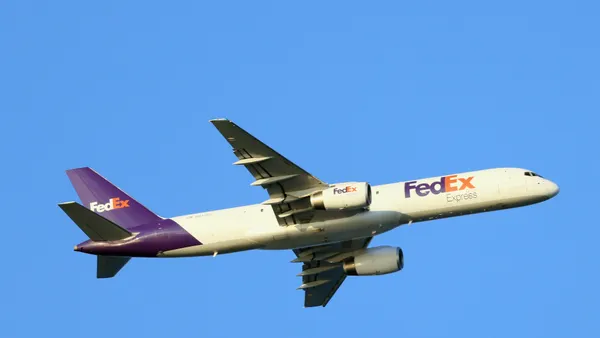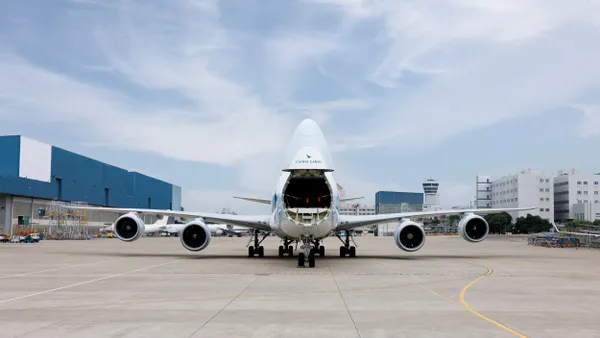Dive Brief:
- Geodis has secured a two-way schedule of flights between China and Europe through the rest of this year and into 2021, the forwarder recently announced.
- Geodis initiated its full aircraft charter arrangements on the route in March and introduced a weekly schedule in an attempt to keep up with airfreight demand that has increased because of fewer capacity options, due to the pandemic. "Now, with both freighter and passenger belly-hold space still in short supply, the logistics provider has announced a permanent schedule reaching into next year," the release said. It didn't say how long the service would last.
- Flights will leave from Shanghai every Monday and from Amsterdam each Sunday. Geodis expects the lane will see a resurgence in demand during the fourth quarter. European car manufacturers were among the shippers requiring such a service, the company said.
Dive Insight:
While the number of passenger flights is still lower than before the pandemic, the air travel market has seen some recovery. More passenger planes means more belly capacity for cargo. But the market is still volatile, Thomas Mack, global head of air freight at DHL Global Forwarding, said in a statement.
DHL is another forwarder to come out with an announcement of dedicated airfreight lanes ahead of peak season. Its air charter connects "Asia Pacific to Europe and the U.S. to meet demand from customers in the technology, manufacturing and life sciences and healthcare sectors," according to a company press release.
The move by Geodis, DHL and other forwarders to secure this space could help provide a bit of stability amid the otherwise unpredictable market.
But this support might come at a cost for shippers. Rates between China/Hong Kong and Europe are up nearly 48% YoY to at $3.68 per kilogram, according to the TAC Index.
Airfreight capacity constraints could worsen as the holiday season approaches and technology companies roll out new products, according to forwarder Flexport.
"Up ahead, a few major product launches — most notably, smartphones, which typically rely on airfreight — are likely to impact overall capacity," Flexport wrote in a blog post earlier this month. "Vaccine shipments will take precedence once available, too."
Major logistics firms are already in talks with the companies developing the vaccine to figure out distribution.
"When you look at the 220 countries that we serve, well over 600 aircraft that we have in our network and the ability to integrate that with our Air and Ground, we are uniquely positioned to support this critical initiative," FedEx Express CEO Don Colleran said of vaccine distribution on the company's earnings call earlier this month. "And we are ready for it."















